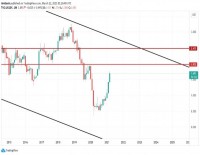|

Macro Liquidity
Investors became much more concerned about their ability to redeem since many funds imposed gates or froze withdrawals in the crisis of 2008. Even those with long time horizons, like endowments and foundations, are careful about committing to long-dated assets after experiencing cash flow problems last year. Even now, certain hard-to-sell assets remain frozen in hedge funds.
As a result, this issue is playing a greater role as investors consider different strategies. Man Group's RMF Global Emerging Managers arm, for instance, chose to seed an Asian macro fund in part because it trades only liquid instruments (see News in this issue).
Dublin-based Abbey Capital, an allocator to managed futures and macro funds, recently moved to weekly liquidity for its multi-manager global macro fund, which offers an eight-manager portfolio. We asked Mick Swift, director of research at Abbey, to discuss the liquidity of global macro strategies.
The firm oversees about $1.7 billion in assets. A wide-ranging discussion of managed futures by Abbey chief executive Tony Gannon can be found in our May 5, 2009, issue.
Opalesque Futures Intelligence: What's your policy regarding redemptions?
Mick Swift: We always try to give the best possible liquidity that we could. The macro fund moved to all managed accounts in the past couple of months, which gives us better liquidity. We're passing that on to our clients. Our flagship ACL Alternative Fund, a portfolio of commodity trading advisors, is almost unique in giving investors daily liquidity. It also provides full transparency of positions. The change to weekly liquidity brings the Macro Fund more in line with ACL.
OFI: Which macro styles allow frequent redemptions?
MS: Much of the trading in global macro is done in futures and foreign exchange, which are marked to market daily and are extremely liquid. However, certain trading styles may involve long holding periods. What we try to do is to invest in those macro styles that capture big macro moves but do so primarily through futures and FX. That gives you a better liquidity profile.
OFI: Does that mean the fund has limited diversity?
MS: The macro fund combines a diverse blend of trading styles and gives exposure to a wide range of sectors and markets. While most of the managers have a discretionary approach, the fund does include some systematic macro strategies as well. Global macro trading aims to exploit cyclical and fundamental market movements. Like managed futures, macro trading has a very diverse universe of markets that includes many asset classes and geographies.
OFI: Can global macro and managed futures be substituted for each other?
MS: We don't see global macro and managed futures as substitutes. They can be complementary. Both work well in a diversified portfolio. Our macro fund has a low correlation with our main fund, probably around 0.3 or 0.4. On the whole the macro fund is more fundamental and discretionary than the CTA portfolio. Mostly the macro styles reflect how the manager feels about, say, the FX marketplace. Even systematic macro captures a different return stream in the market than traditional trend following. Managed futures tends to perform particularly well in equity bear markets. Global macro has done better this year.
OFI: Why did macro do better this year?
MS: The fundamental viewpoint is probably better suited to this year's market environment. Macro teams using a discretionary approach may have caught the equity market trend or the weakening dollar trade, for instance. They try to figure out what's going on in the world and determine their trades on that basis. There is a lot of uncertainty in the world right now. Our managers have long market experience, which can help them discern good trades before others do.
| 




 RSS
RSS










